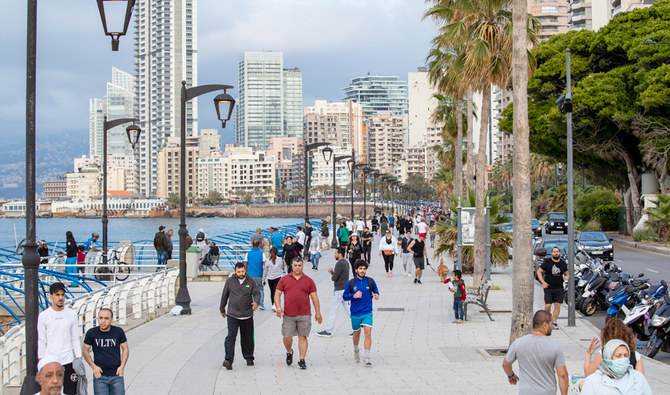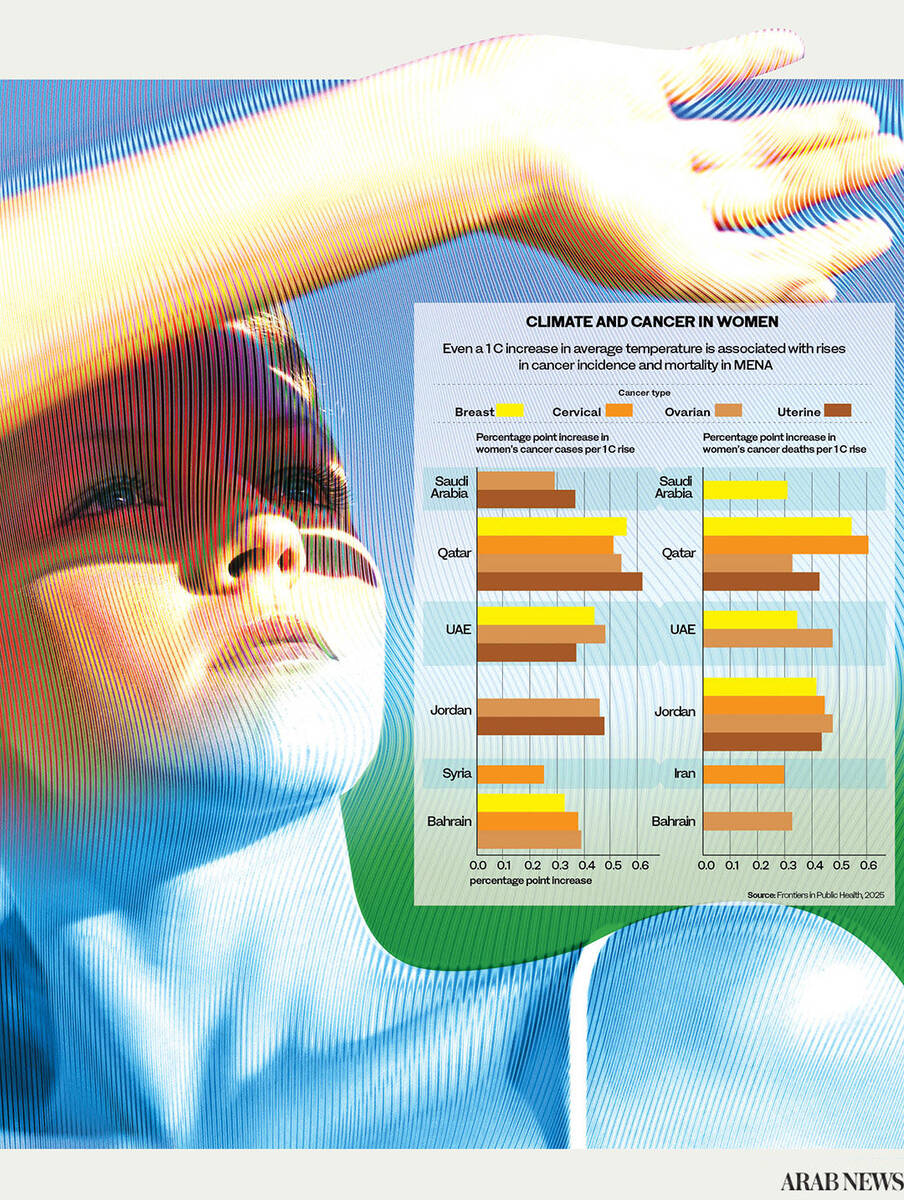BEIRUT: Lebanon is expected to head into a total lockdown again as the health sector buckles under the pressure of soaring coronavirus cases, with the head of a doctors’ syndicate warning that the spread of the disease among medical professionals meant there would be nobody left to treat infected patients.
The Supreme Defense Council meets on Tuesday, under the chairmanship of President Michel Aoun, to take decisive action about a lockdown in light of increasing complaints from doctors and hospital owners that their resources have been depleted.
On Monday, the total number of people infected with the virus was more than 95,000, with daily rates sometimes exceeding 2,000, while the number of deaths has reached 725.
The number of COVID-19 cases during the first week of November alone hit 13,000, while the total number of cases in October exceeded 42,000 cases, the highest number recorded since the virus was first detected in Lebanon in February.
Sharaf Abu Sharaf, who heads the Doctors’ Syndicate, warned: “Lebanon’s continued abandonment of taking strict measures to contain the spread of coronavirus will mean that no one will remain to treat those infected with the virus in hospitals.”
He said 17 doctors were in intensive care units, three doctors had died, and that 100 doctors were under home quarantine.
Mirna Doumit, who is head of the Order of Nurses in Lebanon, said the number of people infected in the medical and nursing body had reached 1,500.
On Monday it was announced that the director of Tripoli Governmental Hospital was infected with coronavirus.
Hariri Governmental Hospital specializes in receiving coronavirus cases. Its general director, Dr. Firas Al-Abyad, said that one infection in every 125 in Lebanon led to death and that this figure rose to one in 10 among the elderly.
“Lebanon will enter a new phase of complete lockdown,” he predicted.
“Without a complete lockdown, the economic situation will worsen in light of the spread of the virus.”
But the idea of a complete lockdown for two weeks, or even a month, has provoked a negative reaction among the Lebanese public. The consensus is that a lockdown is useless without a clear strategy for the next steps.
HIGHLIGHTS
• Lebanon’s Supreme Defense Council meets on Tuesday to take decisive action about a lockdown.
• On Monday, the total number of people infected with the coronavirus was more than 95,000.
• The number of COVID-19 cases during the first week of November alone hit 13,000. • The total number of cases in October exceeded 42,000.
Dr. Abdul Rahman Bizri, an infectious disease specialist and member of the emergency committee on coronavirus, said that the trend on Tuesday was to lock down.
“But we do not know the duration or procedures that will accompany the closure, and the goal is to give the medical and nursing staff a chance to catch a breath,” he told Arab News.
“There are many reasons for the state’s inability to confront the virus in its second wave and not being prepared for it. The hospital sector is 80 percent private and 20 percent public.”
The private hospital sector during the first wave was just a bystander, he added.
“But now, with the reduction in the capacity of the public sector to receive patients in government hospitals, what is required of the private sector has become the performance of the public sector job. How can this be done in light of the state’s inability to pay its accumulated bills to private hospitals?”
He stressed that a complete lockdown, if it happened, would be of no benefit unless it was accompanied by a clear plan for the phased reopening of Lebanon.
“Otherwise, the randomness that the state practiced in the first stage and may practice at this stage may increase the disaster rather than mitigate it.”
The health minister, Hamad Hassan, told a news conference on Monday that a complete lockdown was an opportunity for the health sector to “gather its strength and raise the readiness that was long overdue.”
The partial closure that was followed during the previous period did not give the desired result, he said.
The president of the Syndicate of Private Hospitals, Suleiman Haroun, said that 30 hospitals were capable of receiving coronavirus patients, while 100 others were not ready.
“The internal design of about 60 percent of these hospitals does not allow for isolating a ward or floor and establishing a separate entrance for coronavirus patients, and then there is a shortage of nursing staff, in addition to the financial difficulties. Some hospitals can barely continue.”
Lebanon has in recent weeks isolated towns and villages that recorded an increase in the number of COVID-19 cases, while educational institutions have adopted blended learning to reduce the spread of the virus.
Bechara Asmar, head of the General Labor Union, feared that the results of a complete lockdown would be catastrophic for workers and the economy.
“The devastating repercussions on the Lebanese economy must be discussed if the decision of a total lockdown is made. How are workers going to be compensated?”
Lebanon is suffering from a severe economic and financial crisis that has caused high unemployment rates and rising living costs due to the collapse of the Lebanese pound and low levels of infrastructure.
Economic bodies announced their “absolute rejection” of any possible government decision to shutter Lebanon for four weeks to confront the outbreak, warning of “enormous negative repercussions” for closing the private sector that could not be contained at social and economic levels.
They called for “a careful study” of the measures that would be taken to confront the pandemic in light of the “harsh conditions” that Lebanon and its national economy was going through.
Pierre Al-Achkar, head of the Syndicate of Hotel Owners in Lebanon, said: “The complete lockdown decision in Lebanon is taken without a specific plan or study, while we see in other countries the concerned authorities provide a package of aid and implement several measures to reduce the negative aspects of the lockdown.”
He added that the tourism sector had been in “intensive care” since the Beirut Port explosion of Aug. 4.



































